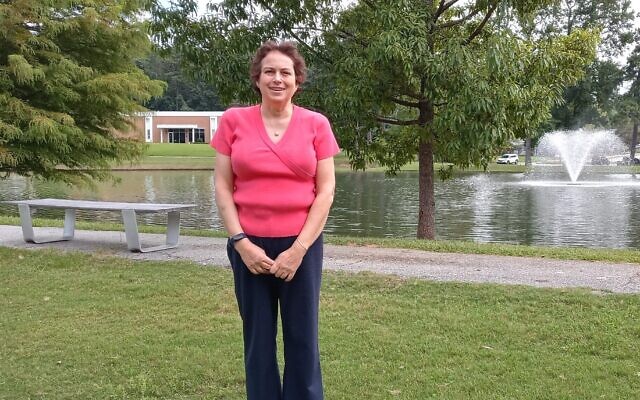Science Professor Weighs Online Learning
Fran Norflus describes biology classes and the possibility of doing lab experiments at home in one’s kitchen away from peer interaction.
After 37 years with the Atlanta Journal-Constitution and now with the AJT, , Jaffe’s focus is lifestyle, art, dining, fashion, and community events with emphasis on Jewish movers and shakers.

Dr. Fran Norflus started teaching online classes well over 10 years ago. The majority of these were with introductory, non-majors’ biology lecture classes and, subsequently, non-majors’ laboratories.
When COVID hit, she recalled, “All classes needed to quickly be changed to online. This was challenging to both faculty and students who might not have been accustomed to it and might not have had the skills or technology to be involved with online classes. As COVID progressed, some classes transitioned into hybrid, where they might meet for a small amount of time on campus, then other times online. There are also asynchronous and synchronous online classes. The former is when students read materials and/or watch videos by themselves online. The latter is when students and faculty will actually see each other and can converse about the material.”
Before the pandemic, an introductory, non-majors’ biology lecture class was comprised of about 64 students. The size has since decreased. The online sections are about 40 students while on-campus labs have 24 students. She summarized, “During the height of the pandemic, some of these classes were synchronous online, but now most are non-synchronous. I suppose it’s difficult to have everyone online at the same time.”
Norflus thinks that coming out of a COVID posture, balance will continue to be found. Upper division classes may require more in-person discussion to review significant details. The non-majors’ laboratories can take different formats. Some use a laboratory kit that students purchase and then perform the experiments at home. In others, students purchase their own supplies and perform experiments in their kitchens. In other cases, there are virtual lab exercises.
Tuition for both online and in-person learning is similar, but there is an extra fee for online classes. Norflus explained that there are advantages and disadvantages to online classes.
“It’s a big savings in time and money when students don’t need to drive to school. It allows for flexibility for students who work. For students who are quiet, online classes allow for more participation. Some students feel stressed taking exams on campus, so online exams might work better. Remote lab classes have pros and cons. Students might involve their families in the experiments and make it a fun experience, but they won’t be able to work with peers or have direct, immediate interaction with faculty. It’s important to learn group work, but in some instances, the groups may not work well together.”
Norflus is no lightweight when it comes to her scientific credentials. She received a Bachelor of Arts in chemistry from Duke University. She then obtained a master’s in biology from Virginia Commonwealth University. She obtained her Ph.D. in a joint program from George Washington University and the National Institutes of Health.
Dr. Norflus performed her Ph.D. and postdoctoral research on treatment of mice that had neurological diseases. Her doctoral research was conducted at the National Institutes of Health where she performed bone marrow transplants on mice that had Tay Sachs and Sandhoff disease. Her postdoctoral research was performed at Emory University and Massachusetts General Hospital where she studied treatments for mice that had Huntington’s disease.
As a full-time professor at Clayton State, Norflus said, “Clayton State University is a hidden gem for learning opportunities with multiple bachelor’s and master’s degree programs. We currently enroll over 6,900 students in challenging campus and online courses. The campus is situated 20 minutes from downtown Atlanta on 214 acres. The school has a diverse student population of students with many non-traditional students who work and have families. The average age is around 26.”
Currently, in addition to teaching, Norflus performs research with undergraduate students using the model organism Caenorhabditis elegans. Most of this research is centered on studying behavioral phenotypes from adding different compounds to different strains of worms.
Dr. Norflus is a member of Ahavath Achim Synagogue.
- Professionals
- Local
- Marcia Caller Jaffe
- Dr. Fran Norflus
- teaching online
- COVID
- biology
- duke university
- Virginia Commonwealth University
- George Washington University
- National Institutes of Health
- Tay-Sachs
- Sandhoff disease
- Emory University
- Massachusetts General Hospital
- Huntington’s disease
- Clayton State
- Caenorhabditis elegans
- Ahavath Achim Synagogue



comments